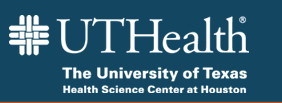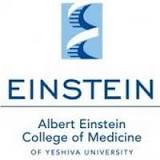Developmental Impact of NICU Exposures (DINE)
| Status: | Recruiting |
|---|---|
| Conditions: | Women's Studies |
| Therapuetic Areas: | Reproductive |
| Healthy: | No |
| Age Range: | 3 - 12 |
| Updated: | 10/25/2018 |
| Start Date: | April 1, 2017 |
| End Date: | August 31, 2023 |
| Contact: | Judy L Aschner, MD |
| Email: | judy.aschner@einstein.yu.edu |
| Phone: | 718-839-7009 |
Developmental Impact of Neonatal Intensive Care Unit (NICU) Exposures: Environmental Influences on Child Health Outcomes (ECHO)
The DINE study will test the hypothesis that potentially avoidable NICU-based exposures
contribute to the neuro-cognitive and somatic impairments prevalent among NICU graduates.
This hypothesis is drawn from the documented impact of phthalate exposure on early
development in term-born children, and the acknowledged presence of these toxic chemicals in
the NICU. Third trimester in utero exposure to phthalates have been linked to poorer
childhood performance in cognition, motor function, attention, hyperactivity and social
behavior. Phthalate exposure is also associated with altered onset of puberty and asthma. The
multi-site cohort and approach will clarify the role of NICU-based phthalate exposure on
high-prevalence clinical outcomes.
contribute to the neuro-cognitive and somatic impairments prevalent among NICU graduates.
This hypothesis is drawn from the documented impact of phthalate exposure on early
development in term-born children, and the acknowledged presence of these toxic chemicals in
the NICU. Third trimester in utero exposure to phthalates have been linked to poorer
childhood performance in cognition, motor function, attention, hyperactivity and social
behavior. Phthalate exposure is also associated with altered onset of puberty and asthma. The
multi-site cohort and approach will clarify the role of NICU-based phthalate exposure on
high-prevalence clinical outcomes.
Background: Each year in the United States, over 300,000 preterm infants are admitted to
neonatal intensive care units (NICUs) where they are exposed to a chemical-intensive hospital
environment during a developmentally vulnerable period. Many life-saving and supportive
respiratory, nutritional, hematologic and pharmaceutical therapies in the NICU expose preterm
infants to potentially harmful chemicals during a life stage analogous to the third trimester
of gestation. The NIH-funded DINE study capitalizes on the infrastructure, biorepositories,
and extensive clinical databases of four existing preterm cohorts to explore the hypothesis
that early life exposure to phthalates adversely impacts neurodevelopment, lung function,
growth, adiposity, and pubertal development in childhood.
The scientific premise of the DINE study is that early life exposure to phthalates, a class
of chemical plasticizers ubiquitous in the NICU, has long-lasting harmful effects on child
health and development, and that these harmful effects are magnified in children born
preterm. This premise is based on strong evidence of multisystem adverse health effects in
term-born children who are exposed to phthalates in utero during the third trimester of
pregnancy or in early infancy. In preterm infants, however, rigorously obtained data on the
health effects of phthalates are scant. Dermal, inhalational and intravenous exposures to
phthalates are widespread in some NICUs, where preterm infants are cared for during the
sensitive "third trimester" developmental window. Moreover, premature infants experience a
high prevalence of the adverse health effects that are associated with early life exposures
to phthalates in term-born children, including altered neurodevelopment, poor pulmonary
function, and maladapted growth. A rigorous, well-designed, sufficiently powered study of
NICU-based phthalate exposures and long-term health outcomes of preterm infants has the
potential to change care practices, promote regulatory policy changes and lead to mitigation
of phthalate exposures in the NICU.
Significance: The proposed research is expected to identify modifiable sources of
developmental risk for NICU patients that can inform and improve hospital care and long-term
outcome. Moreover, our findings could lead to relatively inexpensive NICU interventions, such
as use of non-phthalate containing medical materials, dosing guidelines for elemental metals
and guidance for parents and staff on infant stress-reduction, and policy changes (e.g.
regulation of the phthalates used in medical devices or changes to the trace metal content of
parenteral nutrition) with significant positive potential impacts on life-long morbidities
common among NICU graduates. Information gleaned from studying our highly-exposed,
highly-vulnerable population may elucidate health impacts of early life exposures that
translate to risk reduction in the general population.
neonatal intensive care units (NICUs) where they are exposed to a chemical-intensive hospital
environment during a developmentally vulnerable period. Many life-saving and supportive
respiratory, nutritional, hematologic and pharmaceutical therapies in the NICU expose preterm
infants to potentially harmful chemicals during a life stage analogous to the third trimester
of gestation. The NIH-funded DINE study capitalizes on the infrastructure, biorepositories,
and extensive clinical databases of four existing preterm cohorts to explore the hypothesis
that early life exposure to phthalates adversely impacts neurodevelopment, lung function,
growth, adiposity, and pubertal development in childhood.
The scientific premise of the DINE study is that early life exposure to phthalates, a class
of chemical plasticizers ubiquitous in the NICU, has long-lasting harmful effects on child
health and development, and that these harmful effects are magnified in children born
preterm. This premise is based on strong evidence of multisystem adverse health effects in
term-born children who are exposed to phthalates in utero during the third trimester of
pregnancy or in early infancy. In preterm infants, however, rigorously obtained data on the
health effects of phthalates are scant. Dermal, inhalational and intravenous exposures to
phthalates are widespread in some NICUs, where preterm infants are cared for during the
sensitive "third trimester" developmental window. Moreover, premature infants experience a
high prevalence of the adverse health effects that are associated with early life exposures
to phthalates in term-born children, including altered neurodevelopment, poor pulmonary
function, and maladapted growth. A rigorous, well-designed, sufficiently powered study of
NICU-based phthalate exposures and long-term health outcomes of preterm infants has the
potential to change care practices, promote regulatory policy changes and lead to mitigation
of phthalate exposures in the NICU.
Significance: The proposed research is expected to identify modifiable sources of
developmental risk for NICU patients that can inform and improve hospital care and long-term
outcome. Moreover, our findings could lead to relatively inexpensive NICU interventions, such
as use of non-phthalate containing medical materials, dosing guidelines for elemental metals
and guidance for parents and staff on infant stress-reduction, and policy changes (e.g.
regulation of the phthalates used in medical devices or changes to the trace metal content of
parenteral nutrition) with significant positive potential impacts on life-long morbidities
common among NICU graduates. Information gleaned from studying our highly-exposed,
highly-vulnerable population may elucidate health impacts of early life exposures that
translate to risk reduction in the general population.
Inclusion Criteria:
- Children who were study participants in one of the four extant preterm cohorts (PROP,
TOLSURF, NICU-HEALTH, and PENUT) that comprise the combined DINE cohort and who were
followed to study endpoint at one of the clinical sites in DINE.
- Newly recruited preterm infants admitted to the NICU at the Icahn School of Medicine
at Mount Sinai
- Parents agreed to be re-contacted or local Institutional Review Board (IRB) grants
permission to recontact families to obtain consent to participate in DINE.
Exclusion Criteria:
- Family requested that they not be contacted after their child completed the parent
study
- Family is unlikely to be available for long-term follow-up
We found this trial at
17
sites
Albert Einstein College of Medicine The Albert Einstein College of Medicine of Yeshiva University is...
Click here to add this to my saved trials
7000 Fannin St
Houston, Texas 77030
Houston, Texas 77030
(713) 500-4472

University of Texas Health Science Center at Houston The University of Texas Health Science Center...
Click here to add this to my saved trials
Indiana University INDIANA UNIVERSITY is a major multi-campus public research institution, grounded in the liberal...
Click here to add this to my saved trials
1211 Medical Center Dr
Nashville, Tennessee 37232
Nashville, Tennessee 37232
(615) 322-5000

Vanderbilt Univ Med Ctr Vanderbilt University Medical Center (VUMC) is a comprehensive healthcare facility dedicated...
Click here to add this to my saved trials
University of Rochester The University of Rochester is one of the country's top-tier research universities....
Click here to add this to my saved trials
Univ of Washington Founded in 1861 by a private gift of 10 acres in what...
Click here to add this to my saved trials
Click here to add this to my saved trials
Click here to add this to my saved trials
171 Ashley Avenue
Charleston, South Carolina 29425
Charleston, South Carolina 29425
843-792-1414

Medical University of South Carolina The Medical University of South Carolina (MUSC) has grown from...
Click here to add this to my saved trials
Click here to add this to my saved trials
Click here to add this to my saved trials
Click here to add this to my saved trials
Click here to add this to my saved trials
Icahn School of Medicine at Mount Sinai Icahn School of Medicine at Mount Sinai is...
Click here to add this to my saved trials
Florida Hospital Florida Hospital is one of the country
Click here to add this to my saved trials
Click here to add this to my saved trials
1 Medical Center Blvd
Winston-Salem, North Carolina 27157
Winston-Salem, North Carolina 27157
336-716-2011

Wake Forest University Health Sciences Welcome to Wake Forest Baptist Medical Center, a fully integrated...
Click here to add this to my saved trials





